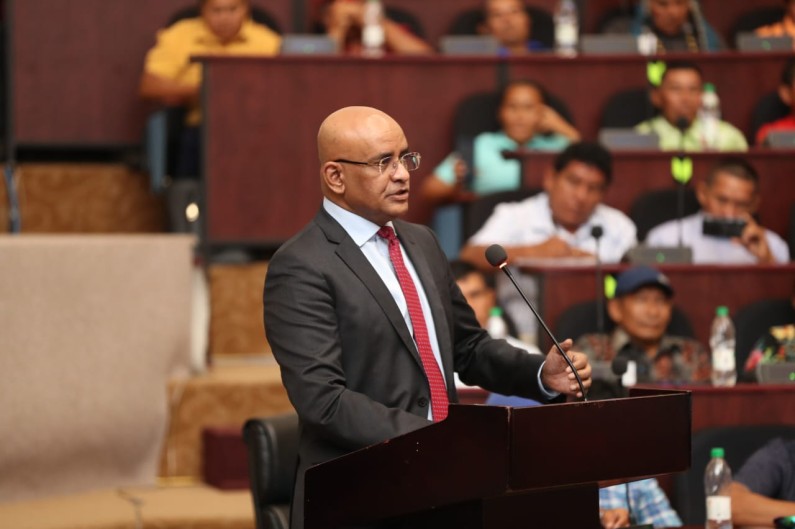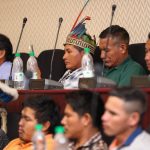
Vice President Bharrat Jagdeo has lashed out at the Amerindian Peoples Association (APA) over claims that the Government violated the Free, Prior and Informed Consent (FPIC) standards when it failed to adequately consult Indigenous Leaders on the sale of carbon credits.
In a statement on Tuesday, APA said the Government summoned Indigenous Leaders to the city to set up bank accounts to facilitate the transfer of monies from the sale of carbon credits, without first stating the amounts to be received or how the monies will be governed.
But the Vice President, in rubbishing the claims, said the APA is a duplicitous organization, which has demonstrated a clear bias against the ruling party, the People’s Progressive Party/Civic (PPP/C).
The Vice President said ahead of the launch of the Low Carbon Development Strategy (LCDS) in 2009, the PPP/C engaged in an extensive process of consultation. Mr Jagdeo, at the time, was the President, and according to him, a broad-based stakeholder committee was established to manage the evolution of the strategy, but APA opted not to be a part of the process.
“There was one organization that refused to be part of that body. The APA refused flatly to be part of the body. Nevertheless, we moved forward and we managed to sign an agreement with Norway for US$250M for the sale of our forest carbon and out of that we identified over US$10M to accelerate Amerindian land titling activities,” the Vice President said.
He said under the PPP/C Administration, the Amerindian Title Lands moved from 6% to over 15% of Guyana. In addition to that, over US$17M supported the advancement of Hinterland Information Communication System, and approximately US$5M for the issuances of grants and small loans to Indigenous People.
He claimed that though developments in Indigenous communities were almost brought to a halt under the A Partnership for National Unity + Alliance For Change (APNU+AFC) Coalition, the APA was muted on the issues affecting Amerindian people.
“They were part of the Government because the head of the APA was the deputy head of APNU’s List for Parliament, and they didn’t say a word in that period. They didn’t say a word when a minister of government stood up and said if Amerindians got more land, they couldn’t benefit from oil money. So, today when I see the attempts to disparage the new LCDS and the efforts that people have made, it pains me, because people are duplicitous. They think they can lie and use people but in this era it can’t work. People are informed,” the Vice President said.
He said contrary to the allegations levelled against the Government by the APA, Indigenous People have a say in their development and stand to benefit even more under the new LCDS 2030. In 2023, Indigenous communities will receive more than $4.7B from the sale of carbon credits, and a total of $23.6B over a period of 10 years.
APA, in a statement, said while it welcomes assistance to Amerindian communities, it strongly believes that Government’s engagement with Indigenous Peoples must be more structured, and decisions ought not to be foisted on them.
APA made it clear that it is in no way blocking villages from accessing governmental support, however, maintains its position that the Administration must respect the FPIC principles.
The APA has also dismissed the claims of political bias and noted that it has been a professional organisation since its inception.

















You must be logged in to post a comment Login